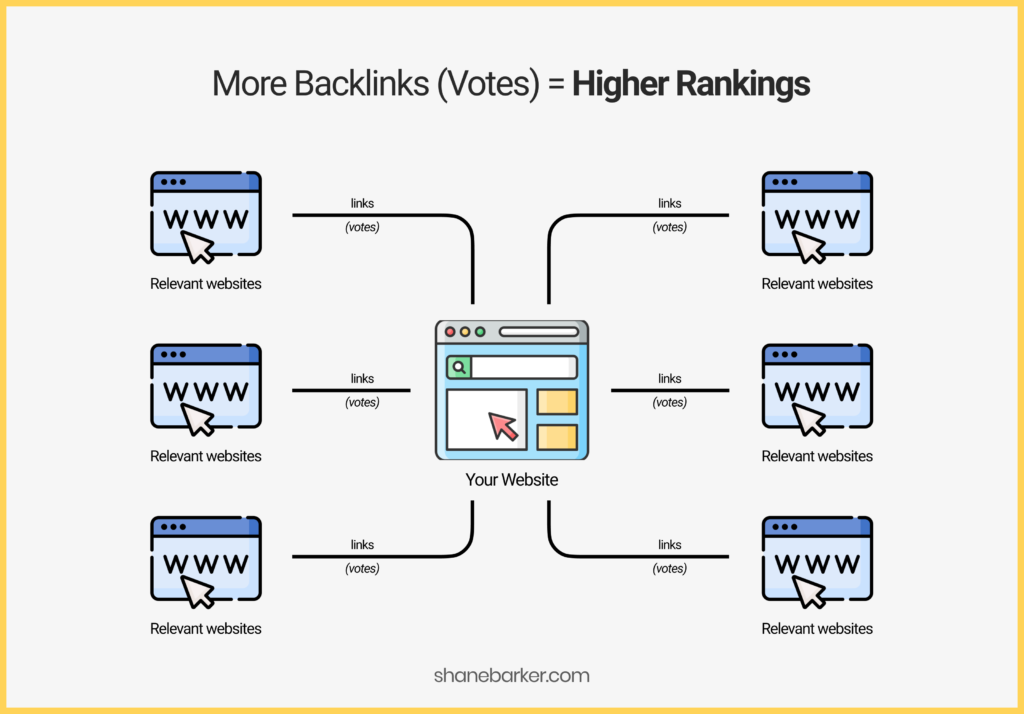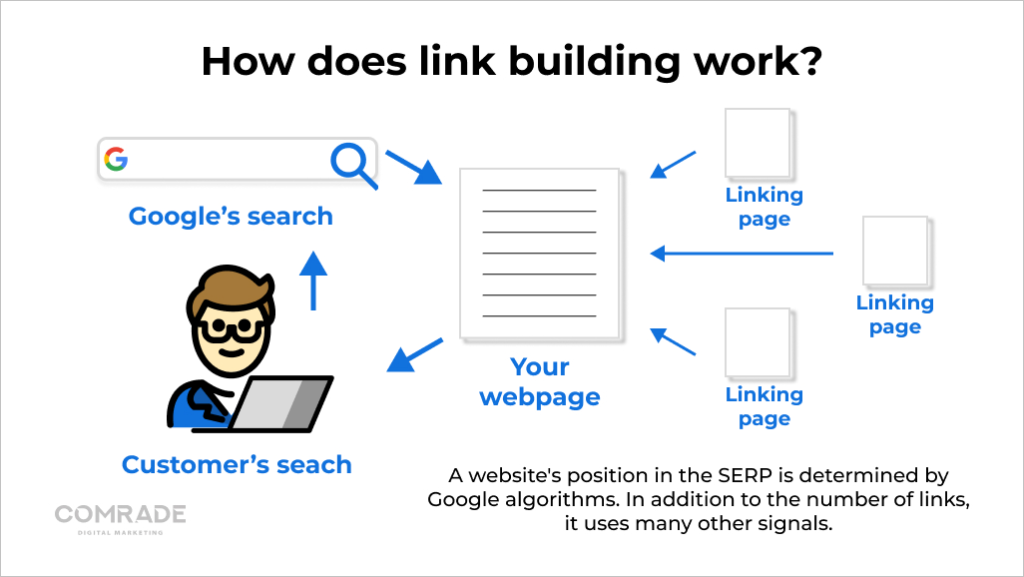How to Develop Effective Link Building Strategies?
You’ve already heard of backlinks, right? Well, link building plays a huge role in ranking your website on Google. Link building can be super effective in driving traffic to your website.
However, natural, organic link building is a complex and time-consuming process. Google need links from other websites to locate your blog content. More links from authoritative websites are better. However, link quality is important! Not all links are equally valued. Even worse, certain links may have negative effects on your website.
What is Link Building?

Link building means gaining hyperlinks from other websites to increase the website’s SEO on search engine results pages (SERPs).
When other websites link to your page, Google gives importance to your website. This is Google’s PageRank algorithm in a nutshell.
So, the more you add high-quality website backlinks to your website, the higher it ranks in Google.
How Does Link Building Work?

There are two ways you can build links to your website: Internal and external linking
Internal Link
Internal links are links to other websites you add to your website or blogs to rank your website on Google.
External Link
External links are links to your website on other people’s websites which lead viewers to your pages. People in the SEO business refer to these external links as ‘backlinks‘. If other websites connect to your pages, you receive backlinks from them. However, if you link from your site to theirs, you are providing them with backlinks.
Techniques for Building High-Quality Backlinks
There are multiple techniques to practice so that external websites link your website some of them are given below:
1. Ghost Blogging
Guest blogging is a proven SEO technique to build links in which you write high-quality content for other blogs in your niche. By doing so, you can earn major backlinks to your website, which will boost your search engine ranks. Develop connections with their editors and pitch your guest post, making sure it is related to their audience.
2. Broken Link Building
First and foremost, you must build a resource on your website, whether it is a full-length beginner’s guide, content marketing and SEO ideas , or something else.
Then, locate a website with a good URL and domain rating, and go through the posts for any broken links.
If you locate a post that might need a new, updated, or unbroken link, contact the webmaster, inform them that their link is broken, and offer your resource as a suitable alternative.
3. Content Creation
Create attractive, interesting and useful content. Firstly, determine your target audience, and what they are willing to see and share with others as well. Give a detailed overview of your product/services with attractive infographics, reviews and benefits. This will build trust and people will link your website to theirs.
4. Content Promotion
Promoting your content is a golden ticket to link-building. Reach out to high-authority websites and explain to them how valuable is your content, and encourage them to share and link to your website.
- Promote your content on the website by advertising to reach thousands of interested people.
- Contact Influencers to promote your content to their followers
- You should start creating an email list (if you haven’t already), stay active on social media sites like Twitter and LinkedIn and promote your resources there to be linked.
- If you continuously create high-quality material, more people will follow you, and many of them may link to your stuff.
5. Never buy links
If you want your site to be removed by Google then buy the links, which you don’t want to. It is a shortcut to generate links but a dangerous way to risk your site, these links are very low quality. That will violate Google guidelines if you buy and use these cheap links. Google can penalize your site, lowering it in the SERPs or removing it entirely, which will surely not drive leads or sales for your business.
Conclusion:
Link building is a continuous task for anyone wanting to succeed with SEO, but the greatest link building plan begins with a solid foundation.
To build passive links, you must first provide quality content that others want to connect to. Begin the practice of continually thinking about your website’s authority and creating new links.
If you accomplish that, you’ll most likely be ahead of the competition and on your path to long-term success on Google.

